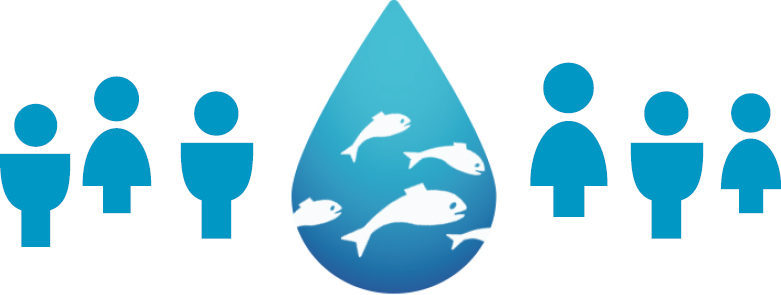Dietary needs
The key element DIETARY NEEDS refer to the fact that consumption of fish can play a unique role in providing healthy nutrients to reduce the burden of disease. Also, cognitive development and growth can be improved by increasing fish consumption in the first 1000 days of life. This key element covers actions to optimise consumption of aquatic food as part of a healthy diet. Relevant SDGs related to this element are SDG 2, 3, 4, 5, 14, 16. Relevant recommendations from the Committee on World Food Security are CFS 4A.1, 4A.2, 4A.6, 4G. More links are required, especially for topics where no links are present yet. Please send input to FoodFromtheOcean@hi.no
Key element DIETARY NEEDS
SDG 2, 5
CFS 4A.1, 4A.2, 4A.6, 4G
Knowledge
Risk-benefit reports
- Report of the Joint FAO/WHO Expert Consultation on the Risks and Benefits of Fish Consumption (FAO/WHO)
- A quantitative assessment of the net effects on fetal neurodevelopment from eating commercial fish (US FDA)
- Statement on the benefits of fish/seafood consumption compared to the risks of methylmercury in fish/seafood (EFSA)
- Benefit-risk assessment of fish and fish products in the Norwegian diet – an update (VKM)
Solutions
Nutrition recommendations and food based dietary guidelines (SDG 2.1, 2.2, 3.b, 3.d and CFS 4A.1, 4A.22)
Reports
- UNSCN Discussion paper “Aquatic foods in sustainable healthy diets”, due in 2020
Dietary recommendations and advice regarding aquatic food
- Summary of FBDG recommendations for fish for the EU, IS, NO, CH and UK (EFSA)
- Advice about Eating Fish (US FDA)
Food and nutrition programmes
- Fiskesprell (Norway)
- Improving livelihoods and nutrition for women and children (India)
Nutrition and dietary recommendations
- Nordic Nutrition Recommendations
- Eating and learning together – recommendations for school meal (Finland)
- Health and joy from food – meal recommendations for early childhood education and care (Finland)
- National action plan for a healthier diet (Norway)
Empower women (SDG 5.5, 5.b, 5.c and CFS 4G)
- In small scale fisheries post-harvest sector (See also solution to challenge B, Leaving no one behind) (LINK REQUIRED)
Model diets for better health
- Mediterranean and New Nordic diets (LINK REQUIRED)
Guidelines
- Voluntary Guidelines on the Progressive Realization of the Right to Adequate Food in the Context of National Food Security (No. 10 and 11) (FAO)
- Voluntary Guidelines for Securing Sustainable Small-Scale Fisheries (FAO)
SMART
Knowledge
Research on aquatic food and health (SDG 2.2, 3.2, 3.4 and CFS 4A.1) (LINK REQUIRED)
Reports (SDG 2.2)
Solutions
Nutrition recommendations and food based dietary guidelines
- Food-Based Dietary Guidelines in Europe (EFSA)
- Food-Based Dietary Guidelines (FAO)
- Food-Based Dietary Guidelines (Denmark, Finland, Iceland, Norway, and Sweden)
Dietary recommendations and advices regarding aquatic food (SDG 2.1, 2.2, 3.d and CFS 4A.1)
- Summary of FBDG recommendations for fish for the EU, IS, NO; CH and UK (EFSA)
- Advice about Eating Fish (US FDA)
- Fish and seafood recommendations in the Nordic Countries
Bringing fish as food into current and coming agendas and fora
Recommendations
- CFS policy recommendations ‘Sustainable fisheries for food security and aquaculture for food security and nutrition’
Knowledge
(LINK REQUIRED)
Solutions to avoid ‘fake news’ concerning fisheries and aquaculture (Brazil) (LINK REQUIRED)
Knowledge
Knowledge on food technology
- Low-cost/small infrastructure technology for improving handling, processing, and storage (LINK REQUIRED)
- Processing and storage SmallFishFood
- Food to suit every palate (NOFIMA, NO)
Knowledge on specific vulnerable groups consumption
- Intra-household consumption (women, children)
- Fish in diets of indigenous peoples
Solutions
Share recipes and products that are easier to eat
Solutions for small-scale infrastructure along the value chain which small producers/processors and vulnerable groups can access and utilize in order to deliver
- Safe aquatic foods (LINK REQUIRED)
- Affordable aquatic foods (LINK REQUIRED)
- Acceptable aquatic foods (LINK REQUIRED)
- Convenient aquatic foods (LINK REQUIRED)
Equitable distribution of aquatic food
- Equal access to markets and technology for improved fish value chains and reduced time burden of women (IYAFA IWD event)
- Equal rights – Gender Transformative Approach and its adoption in the field (IYAFA IWD event)
Guidelines
- Voluntary Guidelines on the Progressive Realization of the Right to Adequate Food in the Context of National Food Security (No. 13) (FAO)
